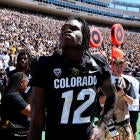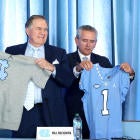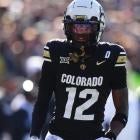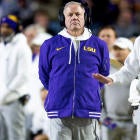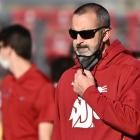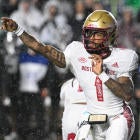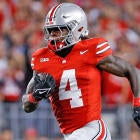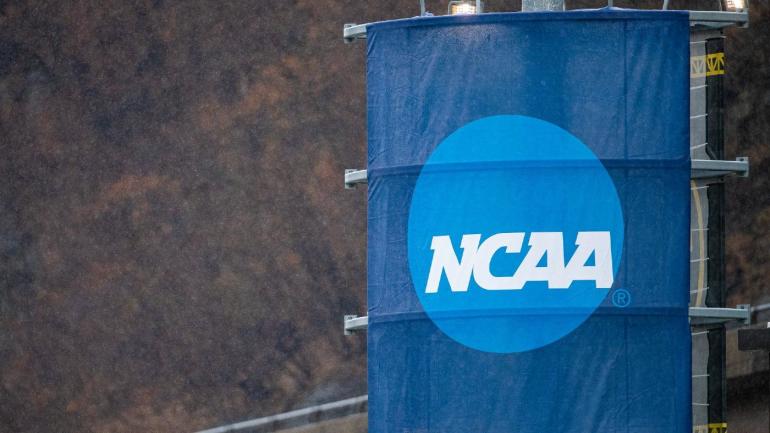
The NCAA Division I Board of Governors on Wednesday approved an interim policy that allows college athletes to monetize their names, images and likenesses for the first time. This "bridge" waiver comes just one day before the NIL floodgates will be opened in 12 states on July 1.
This waiver is intended to cover athletes nationwide and last until either federal legislation is passed or a more permanent NIL rule can be created by the NCAA. It sets minimal regulations for the new world of college sports, one in which athletes will be able to make money from endorsements, sponsorships and social media, among other avenues.
The approval by the board comes two days after a formal recommendation from the Division I Council.
"This is an important day for college athletes since they all are now able to take advantage of name, image and likeness opportunities," NCAA President Mark Emmert said in a statement. "With the variety of state laws adopted across the country, we will continue to work with Congress to develop a solution that will provide clarity on a national level. The current environment -- both legal and legislative -- prevents us from providing a more permanent solution and the level of detail student-athletes deserve."
The goal of the interim policy is to give athletes in states without NIL laws on the books the ability to take advantage of sponsorship opportunities without violating NCAA rules. Notably, the NCAA remains steadfast that the waiver "leaves in place the commitment to avoid pay-for-play and improper inducements tied to choosing to attend a particular school," as it wrote in a Monday press release.
In accordance with the new policy, the NCAA issued the following guidance to college athletes, recruits, their families and member schools:
- Individuals can engage in NIL activities that are consistent with the law of the state where the school is located. Colleges and universities are responsible for determining whether those activities are consistent with state law.
- College athletes who attend a school in a state without an NIL law can engage in this type of activity without violating NCAA rules related to name, image and likeness.
- Individuals can use a professional services provider for NIL activities.
- Student-athletes should report NIL activities consistent with state law or school and conference requirements to their school.
In a Q&A distributed to school athletic directors and compliance departments, the NCAA also clarified that athletes can enter into NIL agreements with boosters "provided the activity is in accordance with state laws and school policy, is not an impermissible inducement and does not constitute pay-for-play."
Additionally, prospective student-athletes still in high school may also engage in the same types of NIL opportunities without impacting their NCAA eligibility. Similarly, such opportunities "may not be used as a recruiting inducement or as a substitute for pay-for-play."
"The new policy preserves the fact college sports are not pay-for-play," said Division II Presidents Council chair Sandra Jordan. "It also reinforces key principles of fairness and integrity across the NCAA and maintains rules prohibiting improper recruiting inducements. It's important any new rules maintain these principles."
While all three NCAA divisions will have to adopt the change through their governance processes -- Divisions II and III also voted on Wednesday -- most of the pressure is on Division I, where all the major revenue-producing schools reside.
Though the NCAA waited until the last moment to approve the waiver, it is nevertheless a strategic move. By doing so, it avoids enacting new rules that might be subject to lawsuits with a hope that federal legislation will be passed sooner than later.
However, such a bill may never come with legislation in the U.S. Senate already becoming politicized. In general, Republicans are seeking an antitrust exemption for the NCAA, while Democrats favor long-term medical care and extended scholarships to ensure athletes earn a degree.
The NCAA has saved itself from legislating NIL benefits, at least temporarily. Members have been increasingly nervous about that prospect after the Supreme Court highly criticized the NCAA while rendering its decision in NCAA vs. Alston earlier this month.
For the last two years, the NCAA has come around to changing the foundation of its amateurism bylaws to consider allowing athletes to be paid for commercials, endorsements, autographs and the like. However, the NCAA has tabled formal NIL legislation since January because of multiple concerns. What has emerged is a sense of desperation within the membership as the NCAA lacked direction. Because of the wait and mounting legal questions, athletes will likely be able to get unprecedented benefits for their talents.
Among the two dozen states that have passed NIL legislation, 12 have an effective date of July 1: Alabama, Connecticut, Florida, Georgia, Illinois, Kentucky, Mississippi, New Mexico, Ohio, Oregon, Pennsylvania and Texas. Two states, Louisiana and Missouri, are awaiting signatures from their respective Governors. In all, 40 states have at least introduced NIL bills with 10 not yet having addressed it: Alaska, Delaware, Colorado, Idaho, Indiana, Maine, Michigan, North Dakota, South Dakota, Wyoming.








